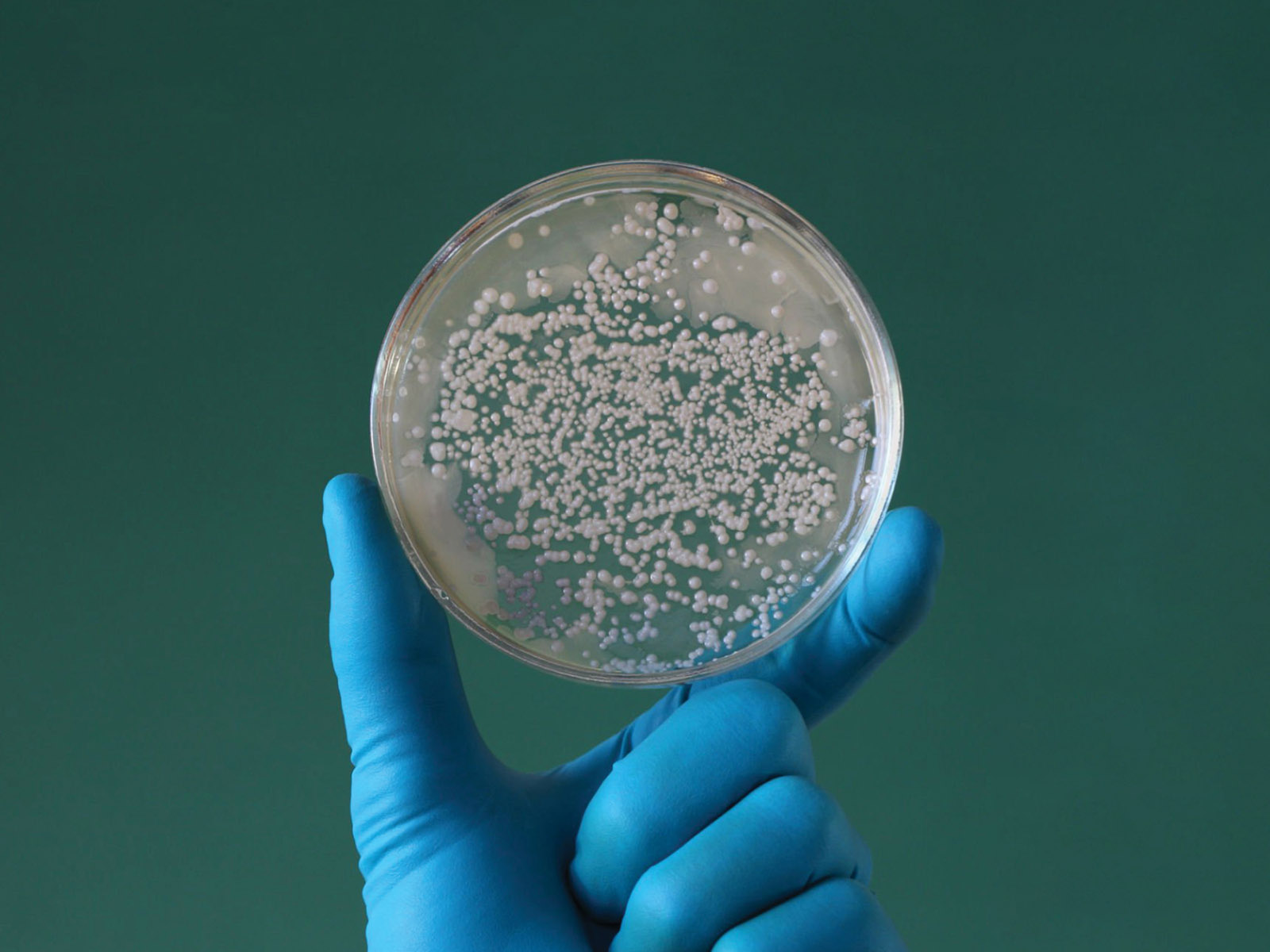
Issue 48
Nov 2023
IN VIVO
By Associate Professor Chen Zhixiong, Assistant Dean (Education), Department of Physiology and NUS Centre for Cancer Research, Yong Loo Lin School of Medicine, National University of Singapore (NUS Medicine)

Among the lessons learned from the COVID-19 pandemic is one where we now know that a whole-of-society approach is required to overcome the next global health crisis. Healthcare and non-healthcare professionals will need to work collaboratively and synergistically together. Yet, non-healthcare professionals today who work in health-related areas mostly train and collaborate on the job, and the learning curve is steep.
At the same time, an increasing number of companies are incorporating health-related functions or interests into their businesses as societies move to deal with rapidly ageing populations and the uncertain evolution of diseases while capitalising on waves of technological advancement. There is a need to prepare the workforce for a health crisis-resilient nation and an ageing population, and provide ethical, thoughtful and sustainable healthcare solutions to the community. This is in line with the recently launched ‘Healthier SG’ initiative that necessitates the training of a workforce beyond healthcare workers that will take on roles to comprehensively improve population health outcomes.
Thus, an educational programme is needed to produce non-healthcare graduates who understand the health sector, and can contribute effectively with their expertise to improve individual and population health. They would need to possess the ability to:
|
• |
Be self-aware of the strengths and weaknesses that their expertise brings |
|
• |
Receive new learning and form networks beyond their own professional disciplines |
|
• |
Straddle fields, create new fields or pivot from one field to another |
An educational programme is needed to produce non-healthcare graduates who understand the health sector, and can contribute effectively with their expertise to improve individual and population health.”
A programme like no other
In August 2023, the NUS Yong Loo Lin School of Medicine will launch the first-ever undergraduate programme called the Minor in Integrative Health (MIH) to train non-healthcare undergraduates on how to situate their disciplines in the context of others and adopt an interdisciplinary mindset towards identifying unmet needs and providing holistic healthcare solutions. They will learn alongside peers from non-healthcare disciplines across NUS through five courses conducted and developed by academic staff from NUS Medicine, College of Design and Engineering, School of Computing, and community and industry partners.
The four-unit courses (What Impacts Health?; Improving Health: Beyond Medicine; Barriers to Health; The Landscape of Health: Evolving Spaces and Technology Integrative Health Capstone) will cover 1) WHO health dimensions and bring ‘Healthier SG’ to the fore; 2) key conditions that affect Singapore and the region, and the medical sciences behind them; 3) barriers in accessing health with respect to demographic groups of interest in Singapore; 4) the future of health via system and user-centric design; and 5) the application of prior learning to solve real-world problems.
These courses will be coordinated by the Departments of Physiology (Dr Ivan Low and Dr Amanda Wong), Biochemistry (Dr Long Yun Chau), Pharmacology (Dr Inthrani Raja Indran and Dr Serena Seah), and Microbiology and Immunology (Dr Ch’ng Jun Hong and Dr Png Chin Wen) with strong support from the Departments of Anatomy and Pathology, and NUS Centre for Future-ready Graduates.
The Minor will equip students with basic health literacy and education as well as competencies such as interdisciplinary collaboration, ethics and humanism, and leadership and management. It will be offered to all NUS students (excluding Dentistry, Medicine, Nursing and Pharmacy) with an initial cohort of 50 students. Students who choose not to pursue the Minor may still read some of the courses as unrestricted electives.
Hands-on, immersion learning
Students will participate in interdisciplinary learning that focuses on various aspects of health. They will gain first-hand exposure to current industry trends, problem identification and solutioning in practice, thus, offering real-world learning beyond theoretical concepts of healthcare. The courses in the Minor are designed to guide students to contextualise and apply critical design, system and ethical thinking to make strategic decisions with consideration of physical, bio-psychosocial, environmental and technological factors to solve real-life health and wellness issues.
Through the Minor, students will have opportunities to build valuable connections with individuals and stakeholders from different backgrounds. It will help students understand the roles of different stakeholders and the value they bring to these organisations. The interdisciplinary nature of the programme also encourages students to develop a receptive mindset and agility to deal with ever-changing challenges to become future leaders in the health sector.

The Minor aims to produce graduates from various disciplines who can embrace the meaning of health through a medical science understanding of the human body and its limits, and the constraints that exist in accessing good health at the individual and population level, so that they can recognise, innovate and advocate solutions wherever they choose to be employed.
The programme also utilises a constructivist approach to deliver education, whereby students make judgments and interpretations of the content based on their prior knowledge and experience. It focuses on providing spaces to ‘co-everything’—from co-conceptualisation to co-implementation. Students will participate in highly interactive dialogue sessions with local and global leaders in various fields. Peer learning, constructive collaboration and self-actualisation will be fostered in these students as they actively participate in team projects, real-life case studies and real-world tasks. Experiential learning through field trips will form part of the course curriculum to connect theories and knowledge learned in the classroom to real-world situations. Final evaluation of the students will be through a capstone project in which they will apply what they learned and work on real-world projects from industry partners or come up with projects themselves, guided by industry and faculty experts.
In all, the Minor aims to produce graduates from various disciplines who can embrace the meaning of health through a medical science understanding of the human body and its limits, and the constraints that exist in accessing good health at the individual and population level, so that they can recognise, innovate and advocate solutions wherever they choose to be employed. This aim is achieved by using computing technology, environmental design and medical sciences as sample disciplines to illustrate the power of interdisciplinary integration in safeguarding health.
Planting the seeds of tomorrow’s healthcare workforce
Integrative health goes beyond disease diagnosis, prevention, and treatment. The provision of overall optimal health and wellness is a major aspect of integrative health. Improved healthcare technologies, environmental and building design, psychological care, data analytics, health economics and healthcare innovations are some key areas that have contributed to the development of integrative health globally.
Therefore, it is important to understand that different fields of expertise from many non-healthcare disciplines have become increasingly important for effective healthcare innovations and interventions. The responsibility of delivering ‘360’ healthcare can no longer be restricted to just healthcare professionals, but must instead be extended to all professions including those in biotechnology, product design, supply chain, IT, finance, urban planning and more.
The MIH programme is designed to give non-healthcare students a head start in careers across a wide range of industries that contribute to health. MIH graduates will enjoy diverse job opportunities in industries ranging from public healthcare and pharmaceutical sector to MedTech and consulting. Indeed, industry leaders in healthcare, MedTech, design/architecture/facilities management, and healthcare consulting welcomed the Minor and unanimously agreed that students with knowledge and understanding of various disciplines would be highly valuable as they are able to coordinate various components of a complex healthcare solutioning system in an ever-interconnected global health market.
Nationally, graduates will be able to contribute to the ‘Healthier SG’ initiative through community partnerships and employment in relevant organisations. They will be able to provide the necessary support structures in manpower, finance, IT, data and public health education to drive the health reforms needed to provide affordable, seamless, integrated, preventive and targeted care to the community.
With competencies in applying interdisciplinary knowledge to close disciplinary skill gaps and improve interventions for health, MIH graduates will be able to navigate and contribute to the complex health sector with greater confidence.
Click here to read more information.
More from this issue



